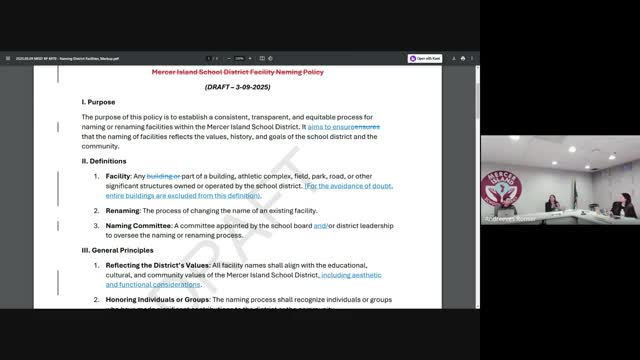Article not found
This article is no longer available. But don't worry—we've gathered other articles that discuss the same topic.
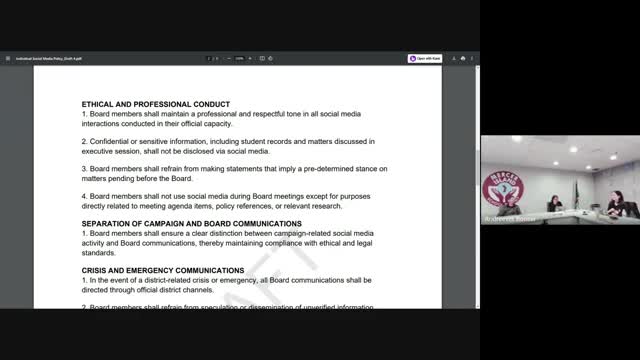
Public input at Mercer Island meeting: supporters urge bond passage; commenters raise concerns about leadership, special education and administrative costs
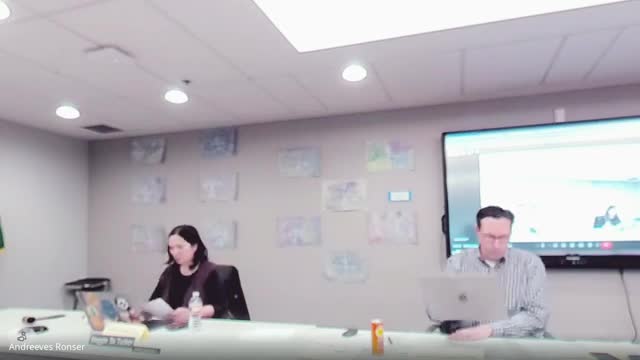
Superintendent outlines likely reductions in force, flags possible cuts to librarians, nurses and instructional coaches
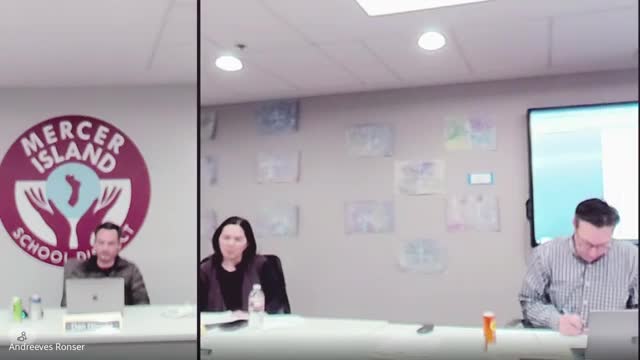
Board debates limits on individual board-member social media accounts in first reading of policy
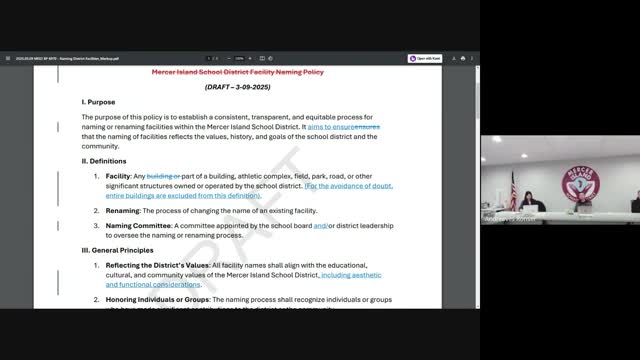
Mercer Island board considers naming policy; staff to draft procedure and return for second reading
